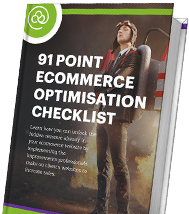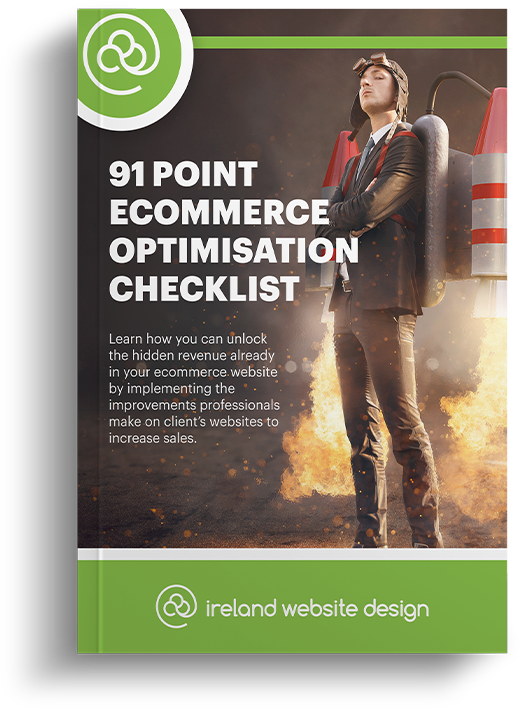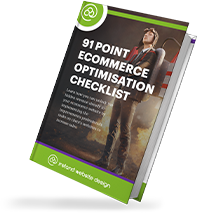When a brick-and-mortar store closes, it can be difficult for business owners to see a future beyond those four walls. From a carefully-crafted business model to long-standing customer relationships, saying goodbye to the world of face-to-face retail sales can be overwhelming.
However, closing a physical shop doesn’t have to be the end of the road for your retail business. With the increasing popularity of eCommerce businesses and online shopping, there’s now more opportunities than ever to rebuild your business and brand strategies.
Wondering where to start?
We’re here with tips on how to build a successful online business after the closure of a physical store. All you need to do is realise that in the retail industry, you really can be the architect of your own future.
Let’s get started.
1. Salvage What You Can
Not all physical retail stores fail because of how you conduct business, sometimes it can be for reasons outside of your control. Therefore, to give your eCommerce operations a head start, it can be useful to consider what worked well in your brick-and-mortar store and implement it in the digital space.
When moving from a physical store to an online store, it can be especially useful to focus on past successes and identify any unique strengths of your business that can be adapted to attract customers online.
Whether you know you already have a strong brand identity or you’ve put significant effort into strategic partnerships, leverage what you can to build up your eCommerce brand image faster than if you were starting from scratch.
Some popular elements of a brick-and-mortar store that translate well online include:
- Customer service and experience
- Product selection and displays
- Branding (how well would your existing branding colours and tone translate online?)
- Business ethics and social responsibility
On the other hand, if some aspects of your branding did not resonate with your customers, view this as an opportunity to start afresh. Consider what you want your brand to represent and how you want to present it to customers in the context of retail eCommerce sales.
While it can vary from business to business, the online space generally offers more creative freedom than a physical storefront. Use this to give your target audience an even better shopping experience than they previously had in person. From product descriptions and video content to out-of-hours access and on-page product reviews — you can build the same business, but better.
Tip: Consistency in branding can be beneficial for brand recognition and helping previous customers connect with you as an eCommerce company. Especially if you want to incorporate brand heritage into your new business strategy, standing out in online marketplaces is easier if people already know who you are.
2. Build on Previous Customers to Attract New Ones
After the closure of a physical store, it can be easy to hone in on a feeling of customer abandonment. This can result in business owners feeling like their eCommerce site needs to start from scratch with a completely new target audience.
However, in a competitive market with an increasing number of businesses selling online, it’s important not to take a lack of in-person visits to your shop personally. Consumer shopping habits have changed significantly in recent years, and with that, your business was going to have to adapt sooner or later.
Remember, consumers don’t always need to have a ‘bad experience’ with you to opt for a competitor; sometimes it just comes down to convenience or finding additional variety elsewhere.
So, instead of seeing your previous customers as the problem, view them as a great starting point for launching your eCommerce sales. It doesn’t matter that they previously chose a competitor over you, what matters is that you now have an opportunity to get them back.
To start, we recommend:
- Carrying benefits from loyalty cards and membership programs over to your new business
- Reaching out to previous loyal customers to inform them of your new launch
- Offering incentives for sharing your online store with friends and family
- Requesting reviews about their previous experiences with your business — you can then publish these reviews on your website!
- Show your appreciation by offering exclusive discounts and promotions
Word-of-mouth is a powerful marketing tool, and past customers can be one of your strongest advocates if given the opportunity. Often, new businesses struggle to get their name shared on digital channels due to a lack of credibility or trust from consumers.
In your case, previous customers already know who you are — which means half the battle is already won!
3. Strengthen the Foundations of Your eCommerce Business by Reframing Your Store Closure
Nothing overshadows the launch of a new business strategy quite like the negativity associated with a previous one. This is why instead of framing your new ‘shop online’ approach as a necessary move for your survival, market it as the beginning of a new chapter in your business.
To do this:
- Focus on the benefits of going online
- Acknowledge newfound opportunities for growth
- Learn from your mistakes and plan for the future more strategically
- Celebrate the fact that you’ve built a brand that’s worth going online with
Having your own eCommerce store doesn’t have to mean your physical store was a waste of time, and it certainly doesn’t have to mark the end of everything you’ve built up to that point. Rather, it can be a valuable opportunity to reach a wider audience online and sell products in a way that still celebrates everything you loved about your shop.
The convenience and global reach of online shopping can’t be denied in today’s society, so use this to create a compelling brand story that reads as ‘success’ rather than ‘failure’.
4. Construct Your Online Business with Confidence
Launching an online store can be overwhelming, but it’s important to approach it with confidence. Especially with a surge of online retailers during the Covid-19 pandemic, it’s essential to plan your business strategy in advance and ensure your brand management is something you’re ready to invest significant time into during the early stages.
We suggest that you:
- Invest in a quality website that is easy to navigate and can be accessed on mobile devices
- Have your shop policies tied down well in advance e.g., delivery and returns policies
- Consider running online ads to reach a broader audience
- Build relationships with strategic partners before launching e.g., reaching out to delivery partners or informing manufacturers about your new business model
- Take advantage of social media platforms to promote your online store and engage with your customers
We also recommended having a solid marketing plan in place from the start. This can include utilising email marketing to reach your customers and keep them updated on new products, promotions, and sales.
You might even want to reach out to influencers in your industry to expand your reach and create an early buzz around your new website. Like we’ve said, selling exclusively online can feel daunting — but it can also offer exciting opportunities you’ve never had access to before.
In Electronic Commerce, You Control the Boundary Lines
How people shop might have changed, but with this comes greater opportunities for your business to thrive globally. Even though consumers are currently in the driver’s seat in terms of customer expectations and the increased demand for efficiency, as an online retailer, you have the final say on your goals and objectives.
Where a physical store is limited by location, opening hours, and the number of customers it can serve in a day — eCommerce stores can be open to customers worldwide, 24/7.
While staffing and supply chain issues can still cause roadblocks, the great thing about online businesses is that they can be more agile in their response to challenges. With the ability to pivot and adapt to changing consumer trends and demands, as an online retailer, you now possess the competitive advantage your brick-and-mortar was lacking.
How Ireland Website Design can Help:
Working with eCommerce platforms such as Shopify, our team at Ireland Website Design can help you build an eCommerce solution that works to attract new customers and bring back ones from day one.
Leveraging the best of what online sales has to offer, we help everyone from small businesses to larger organisations develop their digital presence in a way that boosts growth and encourages long-term stability.
In a market that craves online channels and a more ‘switched-on’ approach to the retail landscape, we enable you to give consumers exactly what they want, when they want it.
Your digital storefront could be just the beginning. Contact us today to find out more!




